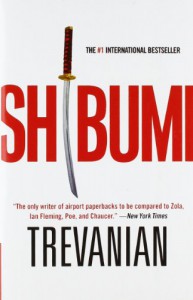6
Followers
24
Following
So.... Nicky?
Pretty much all books, history, science, civil rights, anime, travel, or, you know, baby animals.
 Playful take on the thriller genre, and shows surprisingly few creaky parts for being published in 1979. The computer databases know everything, just like now, only they print it on old-fashioned paper. I liked the first half, going from current spies trying to clean up after a botched case and the origin story of Nicholai Hel, the "world's best assassin." We see into the thoughts and extreme prejudices of all players, and nobody looks good. I liked best how the vagaries of Hel's childhood showed historical events like WWII and the reconstruction of Japan at different angles (Chinese, Japanese, Russian, Australian) than the US view I knew better. I did enjoy all the faux-philosophies, but tired of the relentless stereotypes. Shortly after surviving the burning and bombings in Tokyo, Hel finds work with the US reconstruction effort. Here's his take on Americans:
Playful take on the thriller genre, and shows surprisingly few creaky parts for being published in 1979. The computer databases know everything, just like now, only they print it on old-fashioned paper. I liked the first half, going from current spies trying to clean up after a botched case and the origin story of Nicholai Hel, the "world's best assassin." We see into the thoughts and extreme prejudices of all players, and nobody looks good. I liked best how the vagaries of Hel's childhood showed historical events like WWII and the reconstruction of Japan at different angles (Chinese, Japanese, Russian, Australian) than the US view I knew better. I did enjoy all the faux-philosophies, but tired of the relentless stereotypes. Shortly after surviving the burning and bombings in Tokyo, Hel finds work with the US reconstruction effort. Here's his take on Americans:"In time, and somewhat to his surprise, Nicholai arrived at a kind of emotional truce with the Americans among whom he worked. This is not to say that he came to like them, or to trust them; but he came to realize that they were not the amoral, depraved people their political and military behavior suggested they were. True, they were culturally immature, brash and clumsy, materialistic and historically myopic, loud, bold, and endlessly tiresome in social encounters; but at bottom they were good-hearted and hospitable; willing to share--indeed insistent about sharing--their wealth and ideology with all the world." (p. 126)
Halfway through the book, there's a long, long, long chapter detailing the passage through a cave; I started to skim. The "thriller" part is the last quarter of the book, and true to the first three-quarters is mostly discourse and positioning, mirroring the game Go that Hel is expert in. Might not be what you're looking for if you're looking for action-adventure, unless you really like deep-cave exploring.


